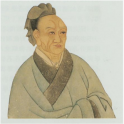Thucydides Roundtable, Book IV: History is Written by the Losers
By T. Greer
Meet Sima Qian. I regard him highly. One could say that he was a historian with balls.
Siam Qian is sometimes called the “Herodotus of the East.” It’s a fair title. Herodotus is one of two men who can claim to have invented history. Sima Qian is the other.
This is a rare feat. It was accomplished in exactly two places. Herodotus did it in Greece; Sima Qian did it in China. Of the other great civilizations—the Mesoamericans, the Egyptians, Sumerians, and their descendants, the Andean kingdoms, the early rulers of the Eurasian steppe, the great empires that sprouted up along the Indus and Ganges rivers, along with their cultural satellites across South and Southeast Asia—history is nowhere to be found. I remember my shock when I discovered our knowledge of ancient India relies more on ancient Greek historians than ancient Indian historians. Traditional Indic civilization simply did not have any. In ancient India, playwrights, poets, lyricists, grammarians, philosophers, story-tellers, mathematicians, military strategists, religious authorities, and religious upstarts all put pen to palm frond, leaving a treasury of Sanskrit literature for the future. This literature is sophisticated. It is meaningful. Even in translation, much of it is beautiful. But search as you may, nowhere in this vast treasury will you ever find a work of history. That a great thinker could profitably spend his time sorting through evidence, trying to tie together cause and effect, distinguishing truth from legend, then present what is found in a written historical narrative—it is an idea that seems to have never occurred to anyone on the entire subcontinent. Only in Greece and in China did this notion catch hold. The work of every historian who ever lived finds its genesis in one of these two places—and with one of these two people.
Sima Qian is not just celebrated for the idea of history. He was also a wonderfully gifted historian. His skill exceeds Herodotus, that dispenser of legends and collector of hoary wives’ tales, and is matched by only a few greats in the West. Polybius. Tacitus. And of course, Thucydides.
Sima Qian had a character to equal his talents. He was the court astronomer and calendar keeper in the reign of the egotistical emperor Han Wudi. In this role he was often present at court deliberations. One court debate scarred him for the rest of his life. He told the story in a letter to a friend named Ren An:
“Events did not unfold as I had planned. I committed an egregious error.
Li Ling [a general who had just been defeated in battle and surrendered to the enemy Xiongnu] and I were both officials in the palace, but we had had no opportunity to become friends. Our duties kept us busy in different offices and we had never so much as sipped a cup of wine together or enjoyed the slightest pleasure of friendship. But I observed that he conducted himself with extraordinary self-possession. He was filial towards his parents, trustworthy with his colleagues, scrupulously honest in matters of finance, upright in exchanges with others, deferential in matters of precedence, respectful, modest, and humble. His thoughts were always animated by selfless devotion to the needs of his country—this was his way, and I saw in him the very image of a statesman. A subject who dashes to the public’s aid, risking ten thousand deaths without thought of his life as he rushes to his country’s defense, such a man rises far above the ordinary. And so when, because of a single indiscretion, courtiers whose sole concern had been preserving themselves whole and protecting their wives and children seized on his mistake to brew disfavor against him, I felt pain for him in my innermost heart…..
Page 1 of 4 | Next page
